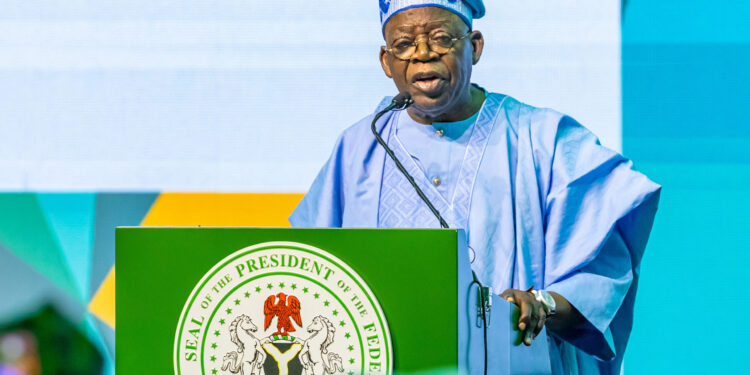President Bola Tinubu has increased the Nigeria Police Force recruitment exercise from 30,000 to 50,000, citing the emerging security challenges across the country.
The President, in a statement on Wednesday, made this known while declaring a nationwide security emergency and ordering additional recruitment into the Armed Forces.
“By this declaration, the police and the army are authorised to recruit more personnel. The police will recruit an additional 20,000 officers, bringing the total to 50,000.
“Although I had previously approved the nationwide upgrade of police training facilities, the police authorities are, by this statement, authorised to use various National Youth Service Corps camps as training depots,” the President stated.
National Security Emergency
According to the President, officers being withdrawn from VIP guard duties should undergo crash training to debrief them and enable them to deliver more efficient police services when deployed to security-challenged areas of the country.
“The DSS also has my authority to immediately deploy all the forest guards already trained to flush out the terrorists and bandits lurking in our forests,” the President stated, adding that the secret agency also has his directive to recruit more personnel to man the forests, as there will be no more hiding places for agents of evil.
Tinubu maintained that his government and the Armed Forces are responding to the national emergency by deploying more boots on the ground, especially in security-challenged areas.
The President used the opportunity to commend security agencies for working together to secure the release of the 24 schoolgirls in Kebbi and the 38 worshippers in Kwara State.
“We will continue to sustain efforts to rescue the remaining students of the Catholic School in Niger State and other Nigerians still being held hostage,” he added.
The President charged the Armed Forces to remain resolute in restoring peace across all theatres of operation and to uphold the highest standards of discipline and integrity.
He warned against compromise, collusion, and negligence, promising that the administration will provide the support they need to succeed.
More Insights
Additionally, the President stated that the administration will support state governments that have established security outfits to safeguard their people from terrorists bent on disrupting national peace.
- He also called “on the National Assembly to begin reviewing national laws to allow states that require state police to establish them.”
- He advised that states should reconsider establishing boarding schools in remote areas without adequate security, while mosques and churches should constantly seek police and other security protection when they gather for prayers, especially in vulnerable areas.
Regarding the persistent clashes between herders and farmers, the President highlighted that his administration created the Livestock Ministry to address the issue.
- He called on all herder associations to take advantage of the ministry’s initiatives, end open grazing, and surrender illegal weapons, emphasising that ranching is now the way forward for sustainable livestock farming and national harmony.
- He sympathised with the families who have lost their loved ones in recent attacks on soft targets in Kebbi, Borno, Zamfara, Niger, Yobe, and Kwara States, and with the families of brave soldiers who have made the ultimate sacrifice, including Brigadier-General Musa Uba.
What to Know
Tinubu’s comments on state police come months after the Leader of the Senate, Senator Opeyemi Bamidele, announced that the National Assembly is drafting legal frameworks to pave the way for the establishment of state police across Nigeria.
This legislative move is one of several proposed measures aimed at addressing the escalating insecurity threatening national stability.
The move to establish state police is not new. A bill aimed at creating state police was initially introduced by former Deputy Senate President Ike Ekweremadu (PDP, Enugu) during the Eighth Senate.
The bill proposed the creation of a dual policing structure comprising the Federal Police, the State Police, the National Police Service Commission, the National Police Council, and the State Police Service Commissions. However, the bill did not pass at the time.















